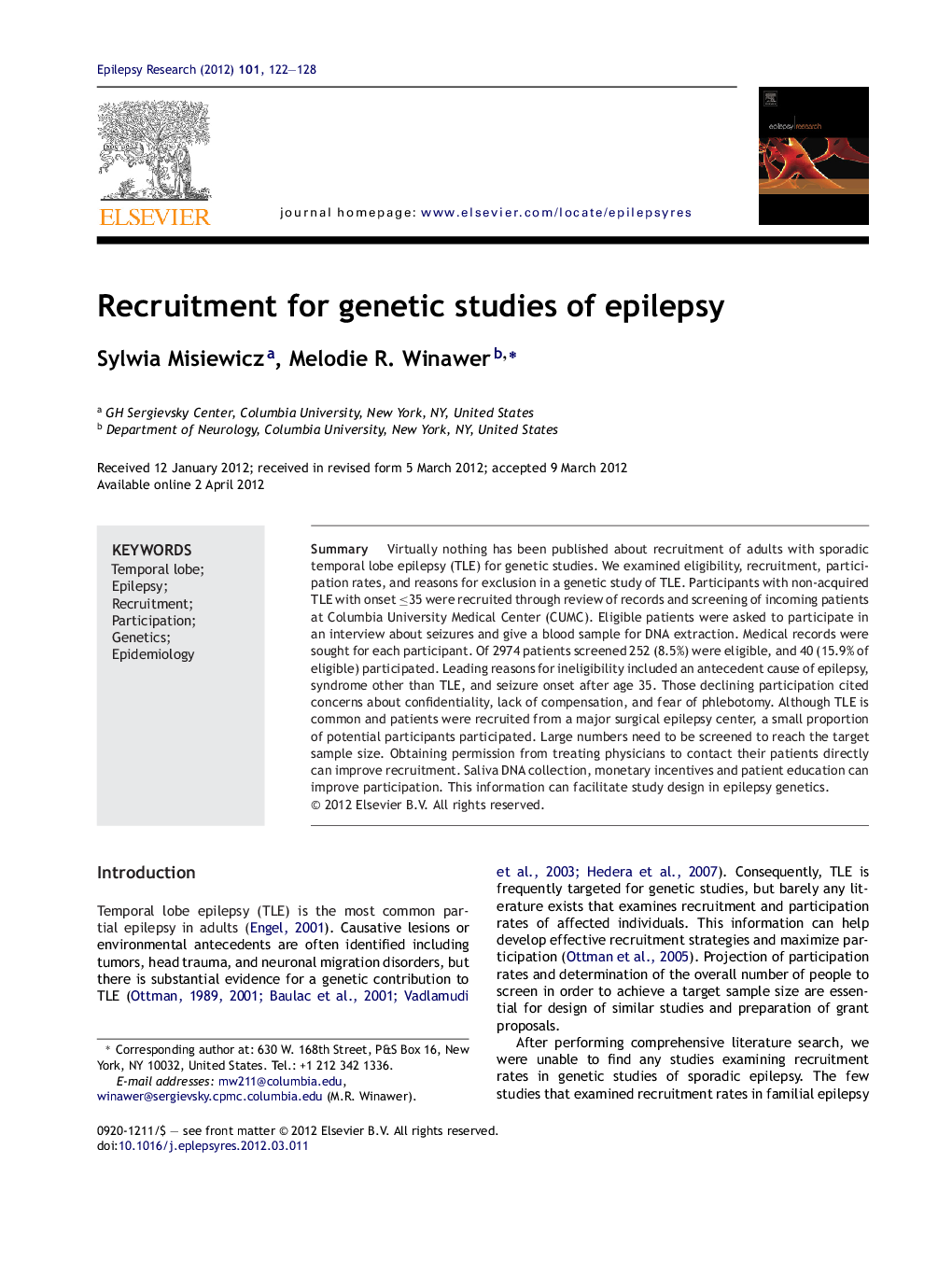| Article ID | Journal | Published Year | Pages | File Type |
|---|---|---|---|---|
| 3052200 | Epilepsy Research | 2012 | 7 Pages |
SummaryVirtually nothing has been published about recruitment of adults with sporadic temporal lobe epilepsy (TLE) for genetic studies. We examined eligibility, recruitment, participation rates, and reasons for exclusion in a genetic study of TLE. Participants with non-acquired TLE with onset ≤35 were recruited through review of records and screening of incoming patients at Columbia University Medical Center (CUMC). Eligible patients were asked to participate in an interview about seizures and give a blood sample for DNA extraction. Medical records were sought for each participant. Of 2974 patients screened 252 (8.5%) were eligible, and 40 (15.9% of eligible) participated. Leading reasons for ineligibility included an antecedent cause of epilepsy, syndrome other than TLE, and seizure onset after age 35. Those declining participation cited concerns about confidentiality, lack of compensation, and fear of phlebotomy. Although TLE is common and patients were recruited from a major surgical epilepsy center, a small proportion of potential participants participated. Large numbers need to be screened to reach the target sample size. Obtaining permission from treating physicians to contact their patients directly can improve recruitment. Saliva DNA collection, monetary incentives and patient education can improve participation. This information can facilitate study design in epilepsy genetics.
